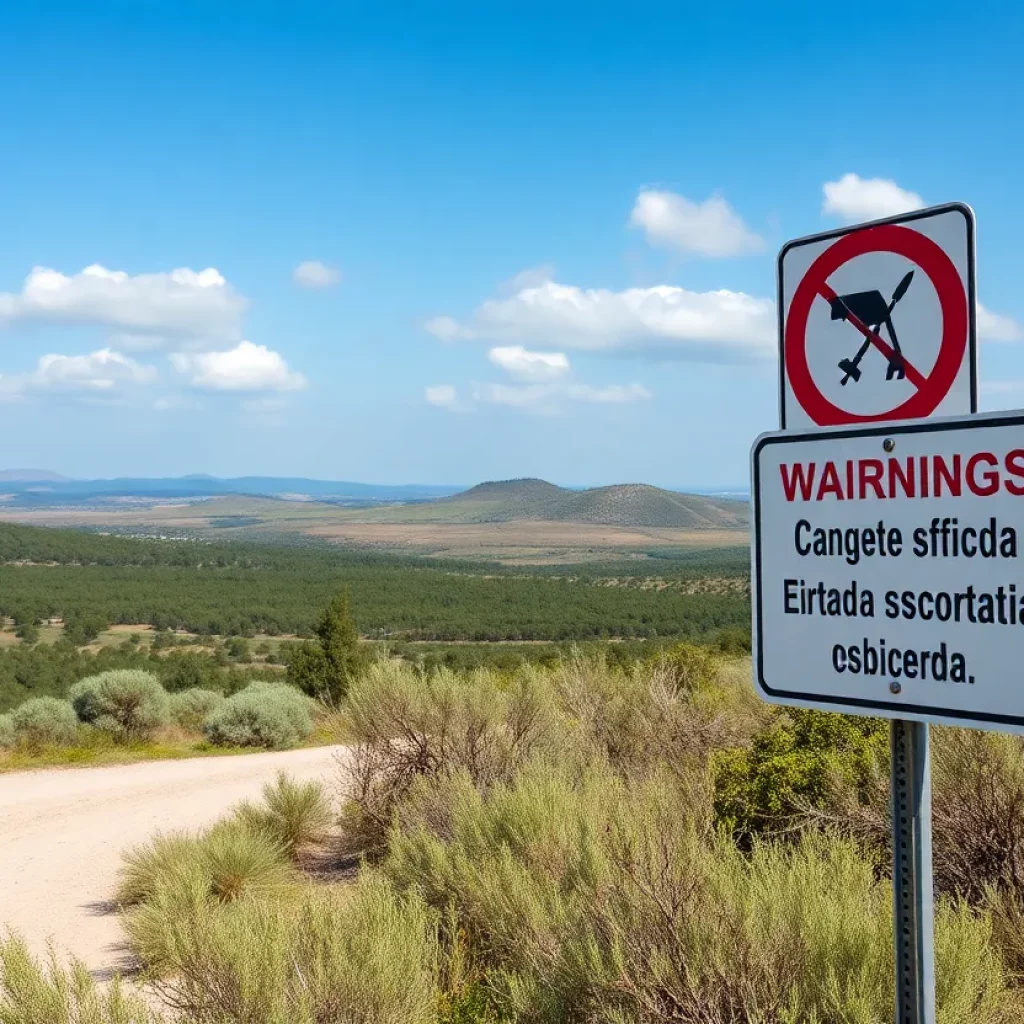News Summary
As changes in federal policies escalate enforcement in military buffer zones, states face significant federalism challenges. A dialogue among former governors highlights the complexities of legal landscapes and the implications of recent convictions for trespassing within newly designated military areas, showcasing the intersection of state authority and federal enforcement. The growing emphasis on national security raises questions about the future of immigration policies as legal precedents are set.
Federalism Tested: States Confront Uncertainty While Military Buffer Zone Enforcement Escalates
As the U.S. grapples with a shifting legal landscape, significant federalism challenges are emerging across states. A recent conversation featuring former Governors Steve Bullock and Larry Hogan, conducted by States Newsroom and Pew Charitable Trusts, explored these pressing issues on June 24, 2025. Their dialogue underscores the complexity states face amid evolving federal policies, including heightened enforcement in newly designated military zones.
Military Buffer Zone in New Mexico: A New Legal Frontier
The landscape of federal enforcement changed dramatically in mid-April 2025 when the U.S. Department of the Interior transferred 406 square miles of land to the U.S. Army. This area is now officially recognized as the New Mexico National Defense Area, an extension of the Fort Huachuca Army installation in neighboring Arizona. With this designation, the commander of Fort Huachuca has implemented a stringent security regulation that has effectively transformed this once-open landscape into a restricted zone.
In a bold move, the U.S. Attorney’s Office for the District of New Mexico has initiated legal action against individuals entering this military zone without authorization. This includes the announcement of the first trespassing convictions derived from this effort. The new legal landscape signals a confrontational approach to managing the border and controlling unauthorized crossings.
Recent Trespassing Convictions Highlight Ongoing Enforcement
On June 1, 2025, the U.S. Attorney for New Mexico, Ryan Ellison, revealed key convictions concerning two Mexican nationals, Andres De Los Santos-Martinez and Eduardo Herrera-Juvencio. De Los Santos-Martinez pled guilty to re-entry after prior deportation, having been apprehended within the New Mexico National Defense Area on May 7. Similarly, Herrera-Juvencio faced the same fate, caught trespassing on the same dates.
This marks a significant moment in law enforcement history, as charges against nearly 100 migrants had been dismissed just weeks earlier due to their ignorance of crossing into a military-controlled area. In contrast, the successful convictions of De Los Santos-Martinez and Herrera-Juvencio cement the federal administration’s commitment to enforcing penal measures within these newly designated zones.
The Legal Implications of Defense Property Security
The ramifications of these convictions extend beyond the immediate cases. Violations of defense property security regulations, coupled with misdemeanor trespassing, carry penalties that may extend up to one year in prison. As the government intensifies its focus on national security, these legal actions are poised to shape future policies affecting military-controlled zones.
A Strategy to Secure the Southern Border
Ellison has underscored the growing importance of a secure southern border, praising collaborative efforts among law enforcement agencies. A coordinated approach between the U.S. Attorney’s Office, Border Patrol, and the military is evident, with public communication efforts featuring warning signs in both English and Spanish—serving as critical deterrents for unauthorised access.
Setting Legal Precedents for Future Cases
The strategic legal actions taken thus far reflect a return to strict enforcement reminiscent of policies championed during previous administrations. These convictions may establish precedents for handling cases involving military-controlled areas along the 170-mile stretch of the U.S.-Mexico border. With the expected sentencing of the convicted individuals, the pathways forward will likely involve deportation proceedings post-incarceration, complicating the legal discourse surrounding immigration policies.
The recent legal developments illustrate the ongoing push and pull between state authority and federal enforcement as America navigates uncertain waters. As issues surrounding federalism and military jurisdiction unfold, the legal community will be closely monitoring how these cases could influence future policies, strategies, and initiatives.
Deeper Dive: News & Info About This Topic
HERE Resources
Chad Meredith Nominated for Federal Judgeship: A Lawyer’s Journey
Federalism Under Fire: Lawyer Challenges Arkansas Hiring Practices
California Lawyer Challenges Federal Overreach Amid Unrest
Charleston Files Lawsuit Against Energy Companies Over Climate Change
Additional Resources
- Source New Mexico
- Wikipedia: Federalism in the United States
- Pew Charitable Trusts
- National Archives: Federalist Papers
- Military.com
Author: STAFF HERE CHARLESTON
The CHARLESTON STAFF WRITER represents the experienced team at HEREcharleston.com, your go-to source for actionable local news and information in Charleston, Charleston County, and beyond. Specializing in "news you can use," we cover essential topics like product reviews for personal and business needs, local business directories, politics, real estate trends, neighborhood insights, and state news affecting the area—with deep expertise drawn from years of dedicated reporting and strong community input, including local press releases and business updates. We deliver top reporting on high-value events such as the Spoleto Festival USA, Charleston Wine + Food Festival, and the MOJA Festival. Our coverage extends to key organizations like the Charleston Metro Chamber of Commerce and the Charleston Museum, plus leading businesses in tourism and maritime industries that power the local economy such as South Carolina Ports Authority and the Charleston Visitor Center. As part of the broader HERE network, including HEREaiken.com, HEREbeaufort.com, HEREchapin.com, HEREcharleston.com, HEREclinton.com, HEREcolumbia.com, HEREgeorgetown.com, HEREgreenwood.com, HEREgreenville.com, HEREhiltonhead.com, HEREirmo.com, HEREmyrtlebeach.com, HEREnewberry.com, HERErockhill.com, HEREspartanburg.com, HEREaustin.com, HEREcollegestation.com, HEREdallas.com, HEREhouston.com, and HEREsanantonio.com, we provide comprehensive, credible insights into South Carolina's dynamic landscape.










